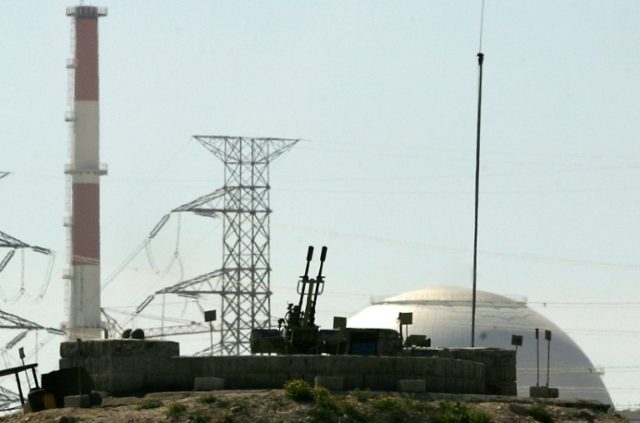Ali Akbar Salehi, the head of Iran’s Atomic Energy Organization, announced on Wednesday that a new factory capable of producing 60 nuclear centrifuge rotors per day is completed and ready to go online if the nuclear deal collapses.
He also said Iran has been steadily acquiring uranium despite the “denuclearization” agreement and now has 950 tons of uranium ready to enrich.
Salehi said these measures were taken in accordance with Supreme Leader Ayatollah Ali Khamenei’s order to prepare for the collapse of the JCPOA (Joint Comprehensive Plan of Action, commonly as the Iran nuclear deal or Iran deal), following the American withdrawal. He then admitted Iran was working on the centrifuge factory and piling up uranium even before the ink dried on the nuclear deal, as Reuters reported:
“Instead of building this factory in the next seven or eight years, we built it during the negotiations but have not started it,” Salehi, said, according to state media.
“Of course, the [Supreme Leader] was completely informed and we gave him the necessary information at the time. And now that he has given the order this factory has started all its work.”
The factory would have the capacity to build rotors for up to 60 IR-6 centrifuges per day, he added.
Separately, Salehi said that Iran now had a stockpile of up to 950 tons of uranium. He said Iran had imported 550 tons of uranium before the nuclear agreement and had acquired approximately another 400 tons after the agreement was finalized, bringing the total stockpile to between 900 and 950 tons.
Salehi did not specify where the additional 400 tons of uranium had come from.
Iran’s lone civilian nuclear power plant requires just 27 tons of fuel per year, but Salehi claimed Iran’s entirely peaceful domestic uranium needs require searching for new deposits in Iran and spinning up the large-scale processing facility in Isfahan.
AFP quoted a spokesman for the Iranian Atomic Energy Organization pitching his agency’s activities as nuclear blackmail against wavering Europeans:
“We have of course adopted some measures in order to prepare the ground for eventually increasing the level of enrichment if it is needed and if the negotiations with the Europeans fail,” Behrouz Kamalvandi, spokesman and vice-president of Iran’s Atomic Energy Organization, told a news conference in Tehran.
“We are of course continuing to carry out and implement our obligations based on the JCPOA,” he said, referring to the 2015 nuclear deal with world powers that put strict limits on its atomic program in return for sanctions relief.
“But at the same time, taking every scenario into consideration, we are preparing ourselves,” he added.
France, Germany, and the U.K. offered Iran a package of “economic guarantees” this month to keep them in the deal, but Iran judged their offer “insufficient” and demanded more.
Iran has declared its patience with negotiations is running out and the Europeans had better pony up more tribute quickly. European leaders are squirming under these demands because they know it will be difficult to convince their corporations to do business with Iran under the threat of secondary U.S. sanctions.
Iran is flirting with cryptocurrencies to alleviate these concerns by reducing American economic leverage, as the mullahs nervously eye their declining economy and wonder if the next protest movement might be too much for them to control.
While Iran was busy making a mockery of President Barack Obama’s nuclear deal by piling up a mountain of radioactive material and revealing it was never more than a month away from enriching it on an enormous scale, it was also busy filing suit against the Trump administration at the International Court of Justice, alleging that pulling out of the JCPOA was a crime.

COMMENTS
Please let us know if you're having issues with commenting.